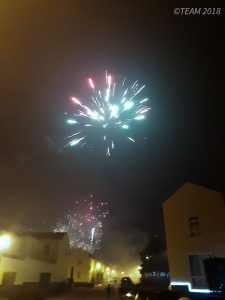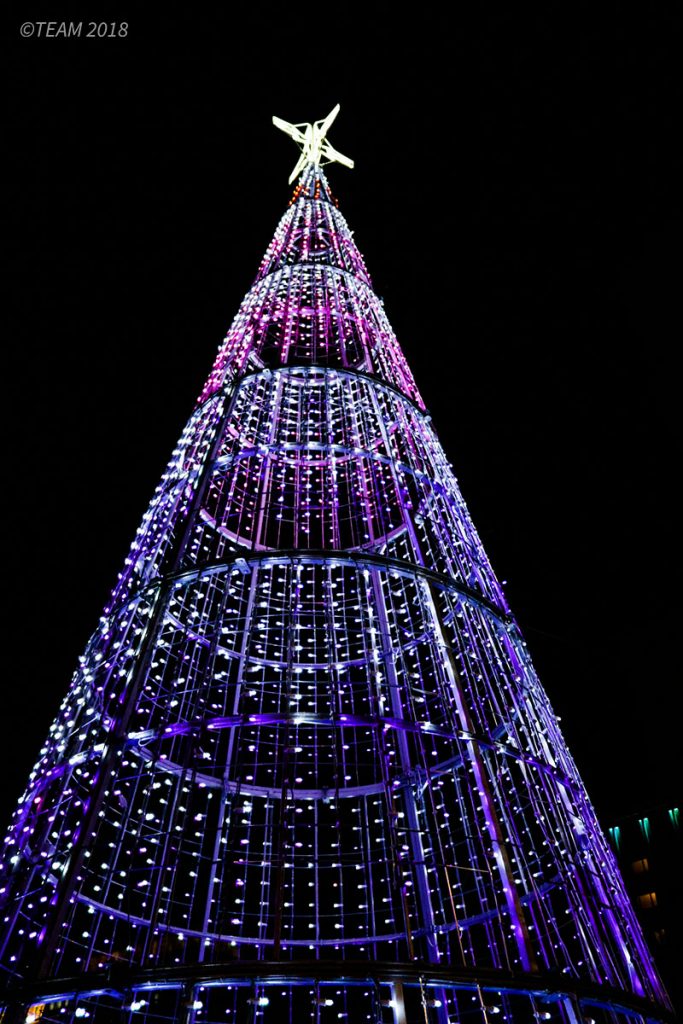
Missionary Life
How Missionaries Around the World Celebrate Christmas
December 20, 2018
by Mark Watson

Hallmark movies, cut-out cookies and letters to Santa are all pretty typical Christmas traditions — for those of us in the United States.
But around the world, there are hundreds of different customs surrounding the holiday season. So what happens when our missionaries immerse themselves in their host cultures? How do they celebrate Christmastime?
To find out, we’ve asked a few of them about their holiday traditions. And here are some of our favorites:
- Christmas Trick-or-Treating
Ryan Kennedy is a second-generation missionary serving in Papua, Indonesia. He was a missionary kid there — and now he’s raising his own kids there. And luckily for them, kids in Indonesia get a special treat on Christmas Day.
“The Indonesian adults open their homes to the kids in the neighborhood to come around to each house, eat some cookies, drink some sprite or coke, visit, then leave,” Ryan says.
He can remember his own parents adhering to this tradition when he was growing up — and they still do today.
“My mom has been good to have a manger scene puzzle, Gospel booklets, candy and drinks outside for all the kids as they come by for Christmas,” Ryan says.
Trick-or-treating is not something Americans associate with Christmas — but to the children of Indonesia, it’s the norm.

Guatemalans start and end the Christmas season with a boom. Photo courtesy of Hannah Yackley.
- Fireworks at Midnight
Last year, TEAM missionary Hannah Yackley celebrated her first Christmas in Guatemala.
“Christmas starts immediately after the Day of the Dead, at the beginning of November. There’s no Thanksgiving so Christmas decorations go up very early in November,” Hannah says. “It seems like Christmas Eve is the big day with family gatherings, and Christmas is more, like, hanging out with your nuclear family.”
But one of the most interesting customs Hannah encountered in Guatemala was the Christmas fireworks.
“The fun starts at midnight [December 24] — in the neighborhood we were at, it seemed like everyone set off fireworks all over,” Hannah says. “I’m used to like, 4th of July shows that the city puts on, so it was different to stand there on the street corner watching fireworks shooting off from every direction.”
In Guatemala, Christmas Day is usually a more low-key than the night before. But even December 25 ends with — wait for it — more fireworks.
- Real Candles (Lit) on Real Trees!
In Austria, the real party usually happens on Christmas Eve, according to TEAM missionary Rhonda Formanek.
December 24 kicks off with a church service. Then Rhonda heads over to the home of a local family she’s befriended.
“The kids and any guests (including me) have to stay out of the living room till the parents light the real candles on the tree — and often some sparklers as well,” she says. “They then ring a bell (which in Austrian tradition means the Christ Child has come with the presents) and then we can all go into the living room.”
In Austria, the Christ Child — or Baby Jesus — is who brings presents for the kids each year, instead of Santa Claus.
Next, Rhonda says they usually sing some songs and make heartfelt toasts before sitting down for the Christmas Eve meal.
In Austria, sweets are usually hung from the tree instead of inedible ornaments. So kids get to eat dessert straight off the Christmas tree as they open their gifts!

Madrid decorates with giant, metal structures and lights. Photo courtesy of Becky Straub.
- Three Kings’ Day
In Spain, what we know as Christmas actually happens during the first week of January. And in Madrid, where TEAM missionary Becky Straub lives, huge metal structures covered in lights decorate the city instead of evergreen trees.
“December 24 (Nochebuena) is not celebrated like it is in the U.S. It is culturally an evening to celebrate Mary giving birth to Jesus, and families typically gather to enjoy a meal together,” Becky says. “Kids may receive small gifts on December 25, but the real day for receiving gifts is January 6.”
January 6 is what the Spanish call Three Kings’ Day because it’s traditionally the three wise men from the story of Jesus’ birth who deliver presents to kids. On the night of January 5, children leave out their shoes (as opposed to stockings) for the kings to leave gifts in.
“On the 6th, it is common to enjoy roscon de los reyes, which is a ring-shaped pastry (symbolic of a crown) usually filled with cream and covered with glazed fruits (symbolizing the jewels of the crown),” Becky says. “Inside the pastry is typically a small plastic baby (symbolic of Jesus). Whoever finds the baby is said to have good luck for the year.”
Want to make this season bright for the missionaries in your life? Check out our post 10 Ways to Support a Missionary this Christmas for practical ideas! Or read The Truth About Being a Missionary at Christmas to learn what they’re experiencing.

